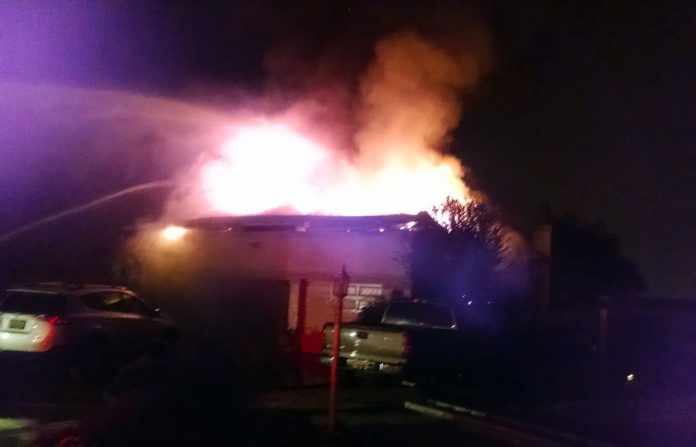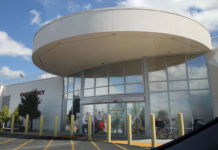Timeless tradition in Hollister: Grown-up children shoot off miniature and not-so-miniature bombs over other residents’ properties, putting neighbors’ lives at risk and keeping the rest of the town awake until violators’ self-justified lawlessness simmers at a time of their choosing.
This mockery of order and disrespect for other people and property must end, especially in light of two Hollister structure fires July 4, a year after children were injured by illegal fireworks in a residential neighborhood.
It is not a one-solution problem, though, so here are five steps (some already discussed) public officials could take to address the problem:
1. Ban all fireworks: Fire Chief Bob Martin Del Campo proposed this idea Tuesday to attack the problem below the knees. Cynics usually counter by noting how illegal fireworks cause most July 4 fires and that such a hasty decision would harm nonprofit fundraising efforts. As we learned this year on Quail Run where legal fireworks caused the blaze, those “safe” fire breathers are not always so safe.
Additionally, such an all-out ban would target the block-party culture relying on both small and large fireworks to sustain hours of amusement. Get rid of the small stuff, and all of the sudden it’s a less-affordable proposition for a daylong or nightlong party.
Then we sometimes forget about that whole California drought and dry summer landscapes and how weather conditions systematically cause fires. It’s unfortunate for the few grandfathered nonprofits raising money through fireworks sales, but this community’s leaders have to make tough choices: Would we rather allow a few nonprofits to set up those booths every July, or ensure community safety? To help make up the difference for nonprofits, the city could offer them free space at the Hollister Independence Rally in a “Nonprofit Alley” featuring local groups.
2. Employ citizens brigade: Hollister Mayor Ignacio Velazquez and Police Chief David Westrick a day after the Fourth both talked about shopping for the best possible app that would allow residents to tip off authorities in real time about areas with illegal fireworks. That could help, but only with enough people on standby to take dozens of reports over a short period.
Traditionally, the fire marshal has overseen fireworks enforcement—a backward approach because fire employees aren’t trained on patrol and there aren’t enough of them for it. After witnessing this year’s environment, Westrick said police will have direct involvement in patrolling for violators next year. Additionally, why not allow a brigade of residents—I’ve volunteered on Twitter for 2017 if they’ll let me—to drive around and pin violators on the app?
3. Invest in temporary resources: Local officials have let this problem get so out of control that it will cost a good chunk of money—maybe even the price of a home—to fix it. It’s worth the investment. For at least a couple of years, the city could seriously ramp up overtime staffing on the night of July 4 and possibly look at other options like hiring private security or other non-sworn workers to handle non-enforcement activities.
4. Tack on penalties: City officials seem to think they can’t increase the individual fines for fireworks violators beyond $1,000, which comes with multiple violations and is not nearly enough of a deterrent for people disintegrating thousands upon thousands of dollars on their holiday explosives. Officials should present a clear report on fine options, because the City of Oakland before this year’s holiday publicized penalties of up to $10,000 for people possessing a large quantity of fireworks. That number sounds both fair—considering the potential damage alone—and shell-shocking enough to send a message.
If the state does pose limitations, then Hollister officials could lead the charge for higher fines at that level because $1,000 is a ludicrous slap on the wrist. Either way, police involvement opens opportunities to enforce not only the fireworks violations, but also other crimes—such as child endangerment—on those blocks. If the city does find a way to raise the fines, officials could use the police chief’s thoughtful idea—to patrol in enforcement zones using historical data—and place posters in those neighborhoods leading up to the holiday warning of $10,000 fines while providing contact information for tipline rewards.
5. Educate through schools: You know how cereal makers are so good at reaching adult consumers through their children? That’s what city officials need to do with the fireworks message. It starts by partnering with the schools on a Safe Summer campaign in the spring that includes an emphasis on the dangers and irresponsibility of fireworks use. If possible, police officers and firefighters could visit schools.
If the kids aren’t overly excited about these illegal, dangerous activities, then maybe their parents might catch on and realize they’ve created and fostered this delusion that it’s somehow OK, or an innocent slice of Americana, for adults to act like buffoons on one day or week of the year. If those kids don’t care for the shenanigans, their parents no longer have the excuse that they’re somehow creating a family-fun environment.
How backward is that? Kids teaching parents …
Editor Kollin Kosmicki writes an occasional column.










